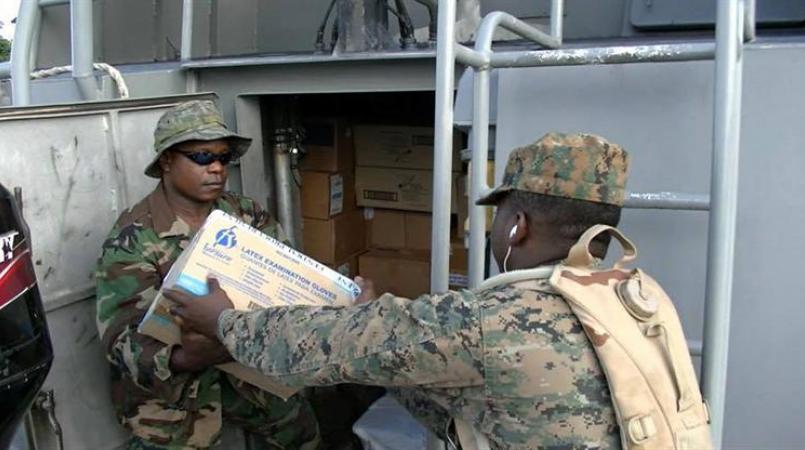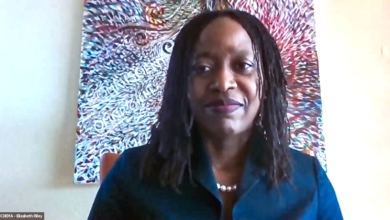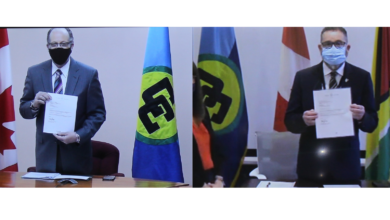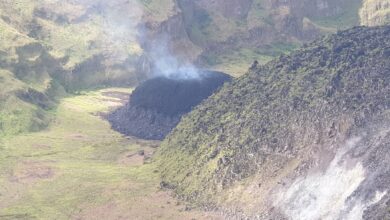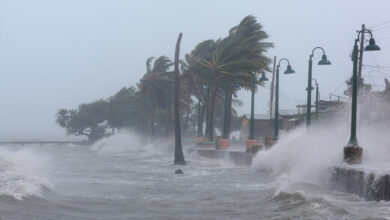THE Caribbean Disaster Emergency Management Agency (CDEMA), successor to the Caribbean Disaster Emergency Response Agency, came into being in September 2009. The Agency’s mandate was enhanced in an effort to further member states’ adoption of a disaster loss reduction and mitigation culture in the Caribbean. The agency, however, was still required to continue with the aspects of the CDERA 1991 mandate, including: – Make immediate and coordinated response to its participating state after a disaster – Mitigate disaster consequences in a participating state – Securing, coordinating and channelling reliable information
Activating the Regional Response Mechanism
In an effort to maximize the principles of the regional integration and solidarity the agency has continued to invest in national and regional capacity capable of supporting the needs of each of its members in times of major emergencies and disasters. When the need arises, the Regional Response Mechanism (RRM) is activated to support an impacted state. The RRM has evolved through learning from historical events. The impact of Tropical Storm Erika on Dominica follows previous rainfall impacts in 2011 and the Christmas rains in December 2013, which provided a signal of what was likely, given a hazard event of the magnitude of Erika or greater. CDEMA anticipated that Erika would probably result in a need for the activation of the RRM in order to effectively respond to the humanitarian needs likely to be generated. On August 27, 2015, immediately after the impact of Erika on Dominica, the executive director of CDEMA contacted the government of Dominica to determine the extent of the impact and initial support required. Following this initial discussion and agreement the RRM was activated. The chairman of the council of ministers of CDEMA and the CDEMA Subregional Focal Point (Barbados), Attorney General Adriel Braithwaite, was briefed on the action to be taken. An initial briefing was also provided to the Secretary General of CARICOM and discussions held with the United Nations (UN) resident coordinator Stephen O’Malley regarding the convening of the Eastern Caribbean Development Partners Group for Disaster Management, which is chaired by CDEMA and the United Nations Development Programme. This allows for the coordination of development partner support to the humanitarian response activated by the CDEMA Coordinating Unit.
Information for coordination
The information ascertained from the policy level interface and the work done on the ground by the CDEMA team informed the donor discussions held between CDEMA, the UN and the community of donors and facilitated the direction of support for the response operations. The assessment received from the CDEMA deployed teams also served to inform the communication dispatched by the CDEMA executive director’s office to all the CDEMA participating states to inform their consideration of support to Dominica. The CDEMA RRM and the CDEMA technical support teams remained in Dominica on a rotational basis for about two months providing advice, technical support in relief management, coordination support in the National Emergency Operations Centre, damage assessment, needs analysis, logistics and guided the start of the recovery process.
Acknowledging support
We wish to thank all the governments, agencies, institutions and individuals who supported the efforts of the RRM. These include the participating states Trinidad and Tobago, Barbados, St Lucia, Antigua and Barbuda, St Vincent and the Grenadines, Jamaica, St Kitts and Nevis, Grenada, Guyana and Montserrat that contributed human resources and assets; our development partners, the British government for their quick response to our request to assist with the airlift, resources and manpower on board the RFA Lyme Bay and the governments of the Netherlands and France (Martinique). Moving Forward One of the key messages communicated to the government of Dominica by CDEMA is the need to examine how land use and development occur in vulnerable areas in Dominica given the nature of the geography of the island. The Erika event, though tragic in many ways, has provided another opportunity for the communities to be better rebuilt, stronger than before, and for further investment in community resilience building and infrastructure hardening. This operation was important in many ways as it allowed the CDEMA system to express the capabilities of a maturing regional system working in concert with external partners to deliver the necessary support to one of its members. It is a realisation of the intent and aspirations of the CARICOM Integration movement in relation to disaster risk management and as expressed in the Articles of Agreement creating CDEMA.


